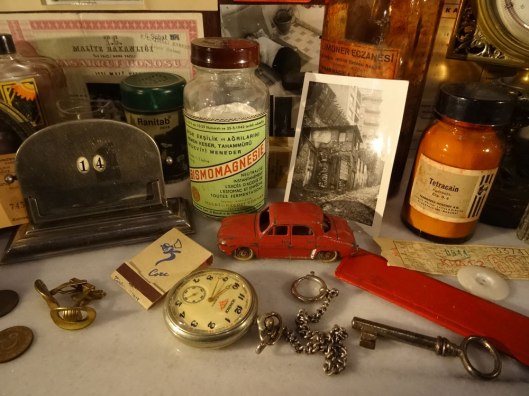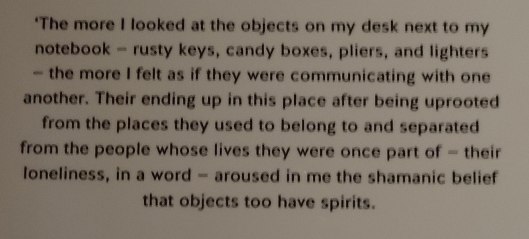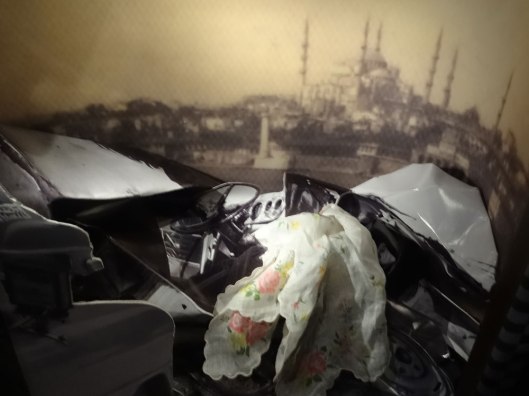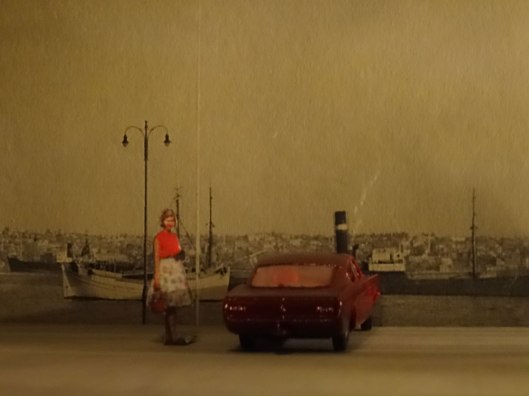Tags
arts, exhibition, film, Grant Gee, Innocence of Memories, Istanbul, Literature, melancholy, Orhan Pamuk, photography, place, psychogeography, The Museum of Innocence, W G Sebald

Are memories inherently melancholy? When in the form of objects or photographs they do seem to be. Is it the element of absence or loss inherent in being of the past or separated from life? Objects and photographs are dissociated physically from their subject or owner, but can be associated in the mind, by the viewer. Or are they innocent of our memories. Do they have a life of their own?
(quote from Pamuk in exhibition)

Orhan Pamuk investigated memory in his novel ‘The Museum of Innocence’, about a doomed love affair, whilst simultaneously collecting related objects for an actual museum, both set in Istanbul.
Vitrines from the museum are now on show in London, at Somerset House, timed for the release of the film by Grant Gee ‘Innocence of Memories‘ inspired by the book and the museum, with excerpts showing in the exhibition. This rather circular activity, together with Pamuk’s documentary book on Istanbul itself, has given me a strange familiarity with a city I have never been to, one completely embodying the concept of hüzün, a Turkish form of melancholy.
“The hüzün of Istanbul is not just the mood evoked by its music and its poetry, it is a way of looking at life that implicates us all, not only a spiritual state but a state of mind that is ultimately as life-affirming as it is negating.” (Pamuk)

What is real though? Who are the people in the photos and who did the objects really belong to? Does it matter?
The film shows us a version of reality – a view of Istanbul at night, its back streets, or seen from a cab, mainly deserted, disembodied, filled with melancholy.
Grant Gee made a film previously on W G Sebald and both authors play with memory, with reality and fiction, blending found photographs, fiction and autobiography in their work. The melancholy evocation of place is also vital to both.
(quote from Pamuk)














